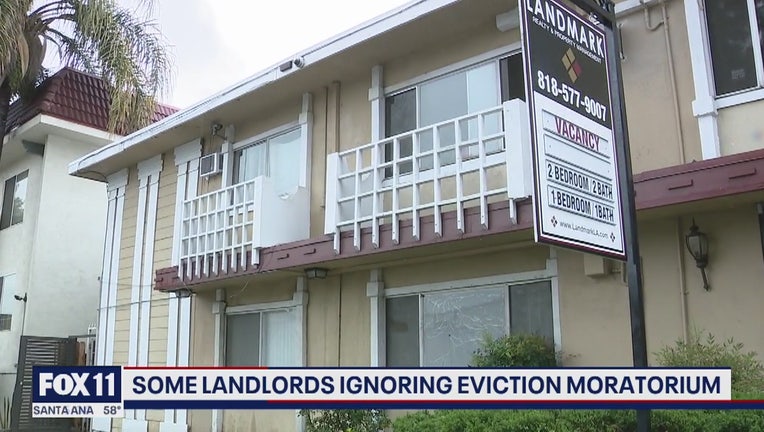Contra Costa County housing advocates call for extension on eviction moratorium

CONTRA COSTA COUNTY, Calif. - With the novel coronavirus pandemic spreading rapidly in Contra Costa County, housing advocates are calling on the board of supervisors to extend an eviction moratorium order that is scheduled to expire next week.
As of Wednesday, the county had recorded a total of 4,375 COVID-19 cases and 88 deaths, with the seven-day average hitting 146 infections, according to Contra Costa Health Services.
And while some pandemic-related restrictions have been lifted on business activities, the county's unemployment rate clocked in at 13.6 percent on May 1, the latest date for which there is data from the California Employment Development Department.
Combined, these numbers indicate that the health care and economic fallout from the pandemic is far from over.
"Contra Costa is fairing worse than most other inner Bay Area counties, both when it comes to rates of infection and on unemployment, which bears on the ability for people to pay the rent," said Alex Werth with the East Bay Housing Organizations.
A report released Wednesday by the Bay Area Equity Atlas details the risks specifically faced by the county's renters, who make up about one-third of Contra Costa's population.
The report found that 12,000 households, including 10,400 children, are at "imminent risk of eviction" if the board of supervisors fails to extend the eviction moratorium, which it first approved in April and then extended in May.
Additionally, 9,500 households could be at risk of eviction once the federal Pandemic Unemployment Compensation program ends at the end of July, according to the report.
"We consider this conservative (since) this only considers households with no replacement income after becoming unemployed," said the report's author Jamila Henderson, a senior associate at PolicyLink, which manages the Equity Atlas in partnership with the San Francisco Foundation and the University of Southern California Program for Environmental and Regional Equity.
"If 10 percent of the currently at-risk households became homeless, that would lead to a 21 percent increase in homelessness," the report says. "This would cause immeasurable despair and disruption for families. And it would exacerbate the county's racial inequities: already, Black people represent 34 percent of the county's unhoused population though they comprise just 8 percent of county residents."
The report notes that Black and Latino renters, especially women, are particularly vulnerable, since they are disproportionately burdened by low-wages and high rents.
Also, about 65,000 Contra Costa County residents are undocumented immigrants who are ineligible for unemployment compensation.
"It's these groups that would be disproportionately affected by the moratorium's end, but it would also exacerbate the existing inequities in the county and make and an equitable recovery even more difficult," Henderson said.
In addition to an extension of the eviction moratorium to 90 days after the current state of emergency ends, PolicyLink, East Bay Housing Organizations and Raise the Roof Coalition are asking that supervisors also prohibit evictions for non-payment of rent due to COVID-19, a policy already in place in Alameda and San Francisco counties.
Advocates are also calling for increased financial assistance, legal services for low-income tenants and for protections like rent control, a rent and eviction registry and a just cause eviction ordinance.
"Contra Costa's protections are weaker than every other county other than Marin's, which of course has a very different socio-economic profile," Werth said.
The moratorium is set to expire on Wednesday and the supervisors are scheduled to consider another extension during their meeting Tuesday.
Board Chairwoman Candace Anderson thinks there is "a strong possibility" that supervisors will vote to extend the residential eviction moratorium.
Who long it will last and what, if any, changes will be made to the county's eviction moratorium applied to commercial properties, will be among the topics discussed, Andersen said.
"I would not be surprised that we extended the (residential) moratorium, because we are in the middle of this crisis and the last thing we want is for people to be homeless," she said.
She said she understands how difficult it will be, once the pandemic is over, for people to pay all of their past due rent while keeping up with their regular monthly payments.
"It's not like people are saving money right now," Andersen said. "It's going take people some time to figure out how to pay their rent, their past due rent. That's where hopefully landlords and tenants can work together to figure out a payment plan that will work for them and not government telling them what to do."

